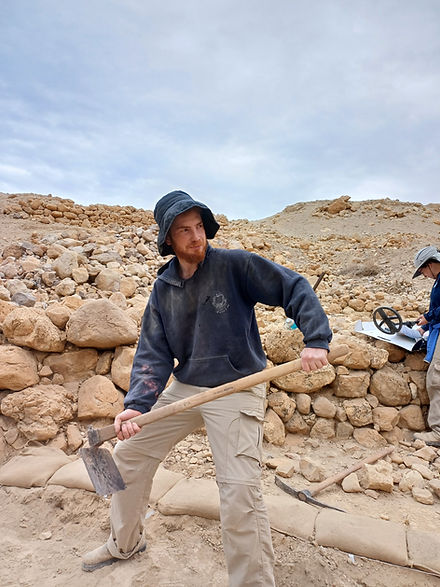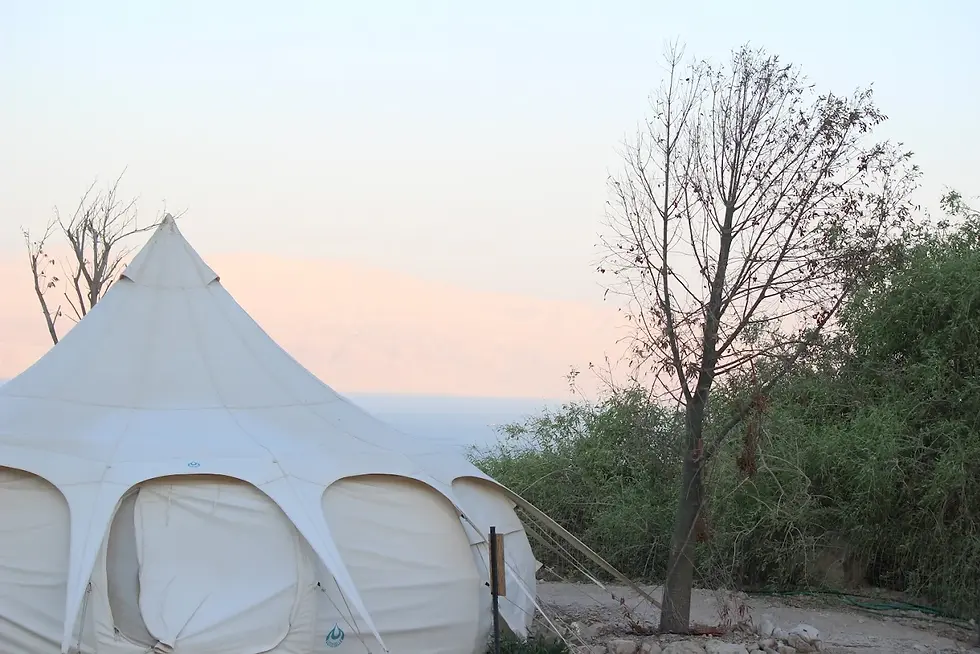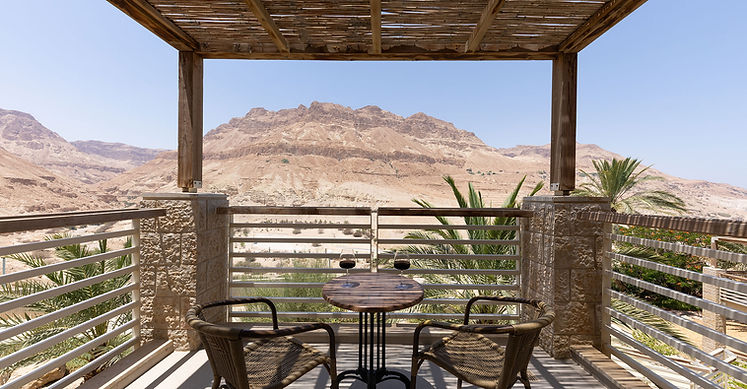
The 2026 Season
The forthcoming excavation season at En-Gedi, scheduled for the 2026 winter, will focus on the continued investigation of remains dating to the late Iron Age and Persian period at Tel Goren. Excavations will target multiple areas across the mound, aiming to identify and characterize the human groups and economic activities that shaped En-Gedi during these periods.


Join us
Register for the upcoming 2026 excavation season at En-Gedi!
Participants will gain hands-on experience in archaeological fieldwork, working alongside a professional team of archaeologists and students.
A certificate of participation is available for students upon request.
Participation and accommodation fees apply (see registration form for details).

Excavation Day Schedule
The excavation lasts from Sundays to Thursdays. Mornings and early afternoons are dedicated to excavation work in the field, and followed by material processing and study activities in the late afternoon.
How a typical daily schedule looks like:
6:15 am Coffee and light breakfast at camp
7:30 am Departure to the excavation site
8:00 am Excavation begins
11:00 am On-site brunch (45 minutes)
3:00 pm Excavation concludes
3:30 pm Tea and refreshments at camp
4:00 pm Pottery washing
5:00 pm Afternoon sessions including pottery reading, artifact sorting, lectures, and occasional field trips
7:00 pm Dinner at camp
7:30 pm Free time for relaxation or personal study
10:00 pm Recommended bedtime

Accomodation
Badolina Ein Gedi Glamping Resort
Accommodation during the excavation season will be provided at Badolina Ein Gedi Glamping, a comfortable resort located within Kibbutz En-Gedi—just a short drive from the excavation site.
Three accommodation options are available at Badolina:
Cabin
Double wooden cabins with a rustic, nature-inspired design. Each cabin includes a comfortable double bed with crisp white linens, ambient lighting, air conditioning, an outdoor balcony, and a peaceful atmosphere. Single or double occupancy is available.
Bell Tent
Spacious canvas tents. Each tent is equipped with up to eight comfortable, neatly arranged mattresses, air conditioning, soft evening lighting, and power outlets for charging personal devices.
Camping (Bring Your Own Tent)
Participants are welcome to bring and pitch their own tents and enjoy full access to the resorts's facilities, including power outlets and showers.
In the evenings, excavations participants will be served a hot meal prepared over an open fire (Kosher, Vegetarian). The glamping site features shared clean bathroom and shower facilities, multiple cozy seating and work areas, designated fire pits, and an on-site bar-restaurant (available at an additional cost for those interested).











Images from Badolina Ein Gedi Glamping website and Google Maps. Images are for illustrative purposes only; appearance and facility features may vary.

Ein Gedi Hotel
Volunteers seeking more upscale accommodations during the excavation are welcome to book a room at the Ein Gedi Hotel.
Located within the botanical gardens of Kibbutz Ein Gedi, the hotel offers modern rooms with stunning views of the Judean Desert and Dead Sea, an outdoor pool, café, free Wi-Fi and more. Additional amenities include sauna, wellness treatments, and more.
Please note: accommodation at the Ein Gedi Hotel is not included in the excavation program and must be reserved independently (for example, via Booking.com). See the registration form for details.
Images from En-Gedi Hotel website. Images are for illustrative purposes only; appearance and facility features may vary.
































